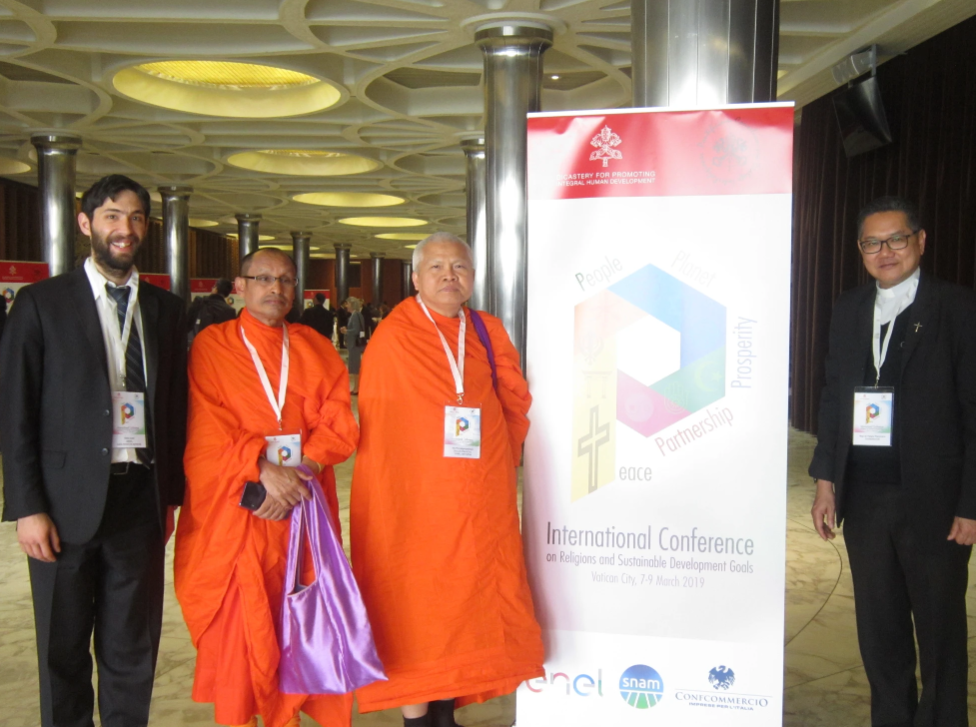July 28, 2022 UPDATE – Last week, the Vatican invited JLens to participate in a conference on religions and the United Nations Sustainable Development Goals, a set of seventeen ambitious goals to address current global problems by the year 2030. The conference brought together hundreds of participants representing every major world religion, as well as representatives of NGO’s and the UN, to discuss the contributions religious communities can make to the goals.
We received the invitation because JLens, as a faith-based investor, is well-positioned to contribute. The UN has acknowledged the vital role that investment will need to play – to the tune of more than $2 trillion a year – in order to scale solutions to global issues, including access to clean water, hunger and forced migration, and peacebuilding. And faith-based investors have historically led the way.
The conference highlighted several themes. First was urgency. Multiple experts expressed concern about the most recent Intergovernmental Panel on Climate Change (IPCC) report on global climate change, which gave a time frame of 12 years – as one presenter noted, “4000 days and counting” – before we have likely locked in a level of global temperature change that will wreak increasing havoc with our human systems for survival. Other presenters highlighted other forms of urgency: one Hindu activist for worker dignity in India, now in his 80’s, who had faced seven attempts on his life and been in jail eleven times, noted that hundreds of millions of people in India still live in conditions of bonded labor that should be unacceptable in the modern world.
Ultimately, the conference called for religious communities to inspire a paradigm change. Pope Francis addressed the participants during the conference and said, “For too long the conventional idea of development has been almost entirely limited to economic growth. Indicators of national development have been based on Gross
Domestic Product (GDP) indices. This has led the modern economic system down a dangerous path where progress is assessed only in terms of material growth, on account of which we are almost obliged to irrationally exploit the environment and our fellow human beings.” Instead, “Economic and political objectives must be sustained by ethical objectives, which presuppose a change of attitude: what the Bible would call a change of heart.”
This general idea – that values and ethics ought to help shape our economic objectives – is also deeply Jewish (to learn more, watch footage of the rabbinic panel from JLens’ Jewish Impact Investing Summit).
I left the conference with a renewed sense of inspiration in potential partnerships. I already have plans to connect with a Muslim colleague in the UK, a Catholic bishop in Europe, and an Eskimo elder from Greenland about potential collaborations. I also left inspired at the growth of this movement for a more sustainable future, especially among us young people, and the knowledge that even institutions that do not yet support this kind of paradigm shift will soon feel the pressure to address it in order to stay relevant in today’s world.




